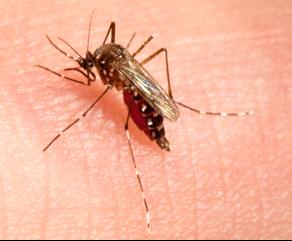
The work allowed researchers to start a consortium involving more than 40 countries and ten institutions, with the goal to compile the first global map of mosquito resistance mechanisms to insecticides. This key initiative is supported by the World Health Organization.
Preventing the spread of mosquito-borne diseases is a global health challenge as the pests’ ability to resist insecticides helps the spread of diseases such as the West Nile Virus infection, malaria, dengue fever and Chikungunya. (The latter causes severe fever and joint pain.) Some of these diseases can easily scale up to full-blown epidemics.
This new findings, which was tested on the Aedes aegypti mosquito (a carrier of dengue fever and Chikungunya), will pave the way for better insecticides and a greater success in controlling mosquitoes that carry human diseases.
As long as there are no alternatives to the use of insecticides in helping prevent the spread of infection, the detection and monitoring of the resistances developed by natural mosquito populations will be essential to keep them under control.
The scientists used a unique approach that involves massive DNA sequencing in order to identify the genetic bases for this resistance. Rather than resorting to the laborious and expensive process of sequencing the entire genome of the mosquito, the scientists used bio-informatic techniques to target only the genes potentially involved in insecticide resistance.
After analyzing these genes, the team determined that a rise in the number of copies of genes coding for detoxification enzymes helped resistant mosquitoes trigger an increase in the activity of these enzymes. They were also able to prove that changes affecting these enzymes could increase the biodegradation of insecticides.
These findings are a step forward in the understanding of how mosquitoes adapt to insecticides, and provide new opportunities to detect them at an early stage (for example, using molecular tests). The authors of the study are hopeful that the findings will be able to deter the spread of mosquitoes in the field, and make it possible to quickly come up with treatments to different resistance phenomena. In other words, be one up on the mosquitoes at all times.